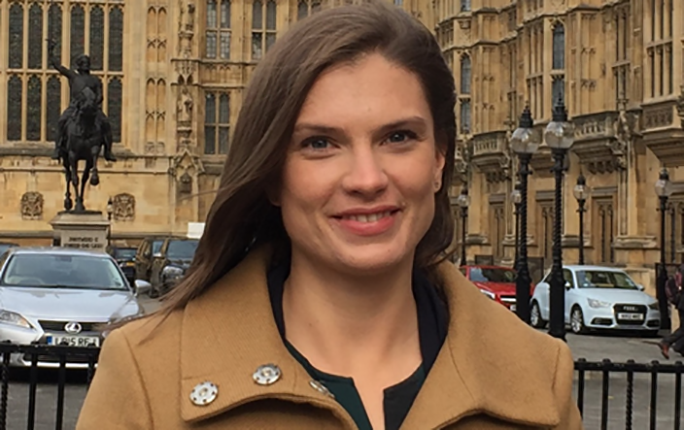Liverpool vets at work: Gabrielle Laing

Gabrielle Laing (BVSc 2010, PhD 2016) is the Parliamentary Veterinary Intern to Professor the Lord Trees of the Ross, former Dean of the University of Liverpool Vet School, who is the only vet in the House of Lords and sits as a Crossbench Peer.
What is your current role?
I support Lord Trees in his role in the House of Lords. The work of the House of Lords is to scrutinise the legislation that is proposed by MPs in the Commons. Each new policy is proposed in a Bill, which will have to pass through three ‘reading’ stages and a Committee stage in the Lords, where there is the opportunity to propose amendments to the legislation. We monitor all the legislation coming through the Lords and examine it for its impact on animal health and welfare, agriculture, environment or the veterinary profession. I compile briefings on a subject that might be coming up, or is regularly discussed such as antimicrobial resistance, the veterinary workforce shortage or extreme conformation in pets.
What career path led you to your current role?
I have always had an interest in current affairs and spending a year in Ethiopia as part of my PhD really highlighted the impact that good (or bad) policy can have on real lives. I’m a big believer in the use of evidence-informed decision making and this applies in policy also. The use of evidence in policy is sometimes different to how it might be used in medicine or veterinary decision making; it has to consider the broader impacts, social acceptability and economics too. However, where primary scientific research may be useful in policy formulation, I think we struggle to bridge the science-policy gap. I hope that my role helps to deliver information to the policy makers in a form that is accessible and useful to them.
What does your job entail, can you describe a typical day?
I work Monday to Thursday in Parliament, based at the House of Lords. I monitor forthcoming business and identify debates or oral questions where Lord Trees may want to contribute. We will also work proactively to ensure we are up-to-date on the current major issues, such as the veterinary workforce shortage. We can then offer these briefings to other Peers that may be interested. Lord Trees helps Chair three of the All Party Parliamentary Groups (APPGs) which we regularly attend. The APPGs are special interest groups where stakeholders can meet with interested MPs and Peers to inform and debate their interests. We work closely with the APPG for Animal Welfare, the APPG for antibiotics and the APPG for Malaria and Neglected Tropical Diseases.
What is the best thing about your job?
The work is so varied; you could be discussing the latest research around measuring agricultural greenhouse gas emissions one minute, and then trying to understand the legal subtleties of legislative wording the next! Being involved in such a wide range of subjects and groups means you can really start to work across sectors, which I find rewarding.
What is the worst thing about your job?
You can write the best evidence-based briefing on a subject, then manage to persuade the right people to read it, but ultimately someone’s decision might be influenced by political context that you aren’t aware of or can’t do anything about!
What advice would you give to those that might be considering a similar career path?
Policy affects us all, even if you don’t want to do it full time then I would urge everyone to engage at some level: local council, veterinary politics or even at national level, for example through the APPGs. For those interested in it longer term then don’t be put off by not having experience: vets are well trained in critical thinking and problem solving within constraints, just think about the average vet consultation!
The veterinary parliamentary internship is now being advertised for a one year position starting in October. Find out more at vetpolicy.org and on Twitter @Vet_Policy